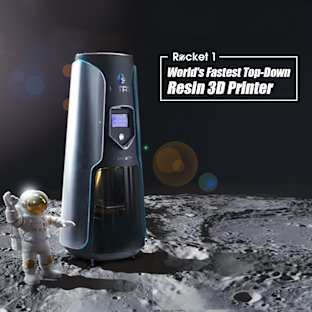$8,712 raised so far plus $10,000 epoxy donation and ~$55,000+ in CAD software and support!
What is Our Project Outcome?
As a result of this campaign, we will be providing free plans, build instructions and electronic files online for our Open Source two seat aircraft.
www.makerplane.org
About MakerPlane
MakerPlane is an open source hardware and software organization and we are changing the aviation industry! Using low-cost digital manufacturing technologies, people will be able to build their aircraft quickly, safely and at low cost. All of our plans are free for the community to download and use.
![]()
MakerPlane: A new way of Building Aircraft and Avionics at home
Our aircraft is being designed specifically for building on a computer controlled router (CNC) either at home or at a local makerspace. We will use 3D printers for non-structural components, such as throttle knobs, handles and so on as well as for tools and jigs to assist with the build process.
Our build process includes simple step-by-step build and assembly instructions, videos and animations. We use slots and tabs where we can to aid in assembly. The main building material for the first design is composite. This is a foam sandwich between layers of epoxy and fibreglass and is very strong and lightweight. It also is a very easy material for CNC machines to cut and fibreglass and epoxy construction is a really easy skill to learn.
We have spent the past 18+ months in the design phase and have started building the prototypes and parts necessary to test and validate the concept. We have now decided to ask for assistance to complete the project and would like your help.
![]()
![MakerPlane v1.0 Tub]()
![]()
![Support on CNC]()
![Sidewalls]()
Many people are familiar with open source software such as Mozilla Firefox and Redhat Linux; these important programs are designed, developed, and maintained by a vast network of talented volunteers, working for free to contribute to a larger cause. MakerPlane seeks to emulate this model and apply it to aviation, by adopting the same open and community-driven principles that have led to the success of multitudes of open source software and hardware projects.
Why Are We Doing This?
Our research indicates that up to three out of four amateur built aircraft projects are abandoned before they are finished. With less than 2,000 new aircraft registered each year globally, that means about 6,000 aircraft projects out there are given up annually. That is a huge number and a lot of wasted money! CNC machines and 3D printers are now affordable consumer tools that are readily available for use at home, or at a local makerspace and are great at saving time and money when manufacturing lots of parts with high accuracy and repeatability. A wing rib, when built by hand, could take three or four hours each. With a CNC that time can be cut to as low as two to three minutes.
Our first open source aircraft is a community designed 2-seat Experimental Light Sport Aircraft (E-LSA). LSA aircraft can be flown with a Sport Pilot License in the US. This particular design is being completed by an aeronautical engineer volunteer and from contributors all over the world. It is expected that the design will be complete within the next 12 months. A flying prototype is expected at AirVenture, Oshkosh in 2015.
The results of this project will also assist other builders and designers in the experimental aviation field. All information will be made available and the techniques being explored and implemented for construction and assembly can be adapted for use by other projects.
We are collaborating with Purdue University Hangar of the Future facility exploring the use of Augmented Reality (AR) applications for aviation use and we hope to bring the results of that research to this MakerPlane project.
![MakerPlane Rudder and Brake Design]()
MakerPlane Rudder and Brake Design Draft
Where Does The Money Go?
We are building the aircraft and flying it before getting the plans out into the world and as such, there are material costs associated with building this space-age composite design, some tooling upgrade costs, engine, instruments and some one-time external labor costs for test and certification to ensure that the design meets LSA specifications. This means test to breaking point to establish baselines for maximum safety. (The LSA specifications are an additional safety factor only and is above and beyond what is required for an experimental LSA (E-LSA) design.)
Our Aeronautical Engineer, Jeffrey Meyer, is also in the process of building a 1/4 scale radio controlled model with telemetry to validate the design elements and tweak if necessary. We also need to test construction and assembly processes to ensure that the plans are easy to understand and that the steps to build it are minimized to save time and money for anyone putting a MakerPlane aircraft together.
We are currently building a full scale static aircraft to test out these construction techniques and validate and test the design. This work in progress will be shown at AirVenture Oshkosh in July this year. The completed first aircraft will be shown at AirVenture, Oshkosh 2014. We are then building the flying aircraft that we will be showing at AirVenture, Oshkosh in 2015 and release of final plans as Open Source in late 2015.
So to summarize the four phases in our plan:
Phase 1 (Underway):
- Complete full-sized static test aircraft.
Phase 2 (Some overlapping tasks with Phase 1):
- Test and evaluation of components and sub-assemblies;
- Verification of ASTM Standards (LSA) for MakerPlane v1.0; and
- Show aircraft at Oshkosh 2014.
Phase 3:
- Construct MP v1.0 flying aircraft;
- MD-RA inspection costs (major portion, pre-cover and final);
- Confirm and amend Construction and Assembly Manuals and Plans as required;
- Test flight schedule flown off and snags remedied if any; and
- Fly to AirVenture 2015.
Phase 4:
- Create final plans and assembly instructions and host on MakerPlane website.
Full funding from Indiegogo will see us through to the end of Phase 4. More than the target funding will allow us to do this much quicker and accelerate the schedule.
![]()
Thank you so much Indiegogo backers for helping to make this project a reality! Every pledge brings us closer.
FAQ
Who are you? What is your background?
John Nicol. Technologist, high-tech engineering type. Former Lockheed Martin Principle Engineer in flight simulation, a pilot, aircraft builder and maker. 20 + years experience as a Leader and Project Manager that has led multi-million dollar complex projects in the Defence and Aerospace industry. Previous roles include VP Engineering for a high-tech firm based in Silicon Valley and CEO of a Top 40 Canadian Defence and Public Security company.
Jeffrey Meyer. Aeronautical engineer. Jeffrey is the lead aeronautical engineer responsible for the MakerPlane v1.0 LSA design and has over 40 years general engineering experience. He has a BSc. Mechanical Engineering and MSc. Aeronautical Engineering from the Technion, Israel Institute of Technology. Jeffrey is currently an adjunct lecturer in the Aerospace Engineering Facility of the Technion. Jeffrey says, "If it flies I like it, but also dabble in electronics, software development, R/C modeling, and teaching kids and university students about aero modeling. Private pilot and glider pilot licenses, long expired – too expensive and troublesome over here."
MakerPlane Team. There are many other dedicated volunteers and contributors to the MakerPlane vision working hard on other projects such as an open source glass cockpit, bus protocol and, 3D printed component designs. We cross-polinate ideas and contributions regularly and all share the vision of getting the MakerPlane v1.0 aircraft into the air!
Check out the current list of core team members at MakerPlane HERE!
What is the Projected Cost to Build A MakerPlane v1.0 LSA?
We are aiming for a total cost of under US$15,000 for the aircraft. This includes avionics and engine. Most aircraft in this category and construction methodology are double that.
Specifications
Estimated Build Time: 500 hours
Power Plant: 80-130hp
Fuel Capacity: 40 gal (in fuselage)
Maximum Gross Weight: 1320lb (600kg) LSA
Empty Weight (estimate): 600-630lb
Payload Full Fuel: 430lb
Wing Span (no winglets): 32.8ft
Wing Area: 121.6ft
Wing Loading: 10.9lb/sq ft
Cabin Width: 48" net
Length Overall: 24ft
Height Overall: 8ft
Performance: LSA Compliant
General: Wings removable for trailering
No external wing struts
Composite construction - all singly curved surfaces
Provision for ballistic parachute
Choice of wing plan forms
Now wait a minute! You are telling me I can build an aircraft and just fly it?
Nope. Most countries have rules and regulations regarding flying machines that you build yourself. In the US for example, the aircraft in the Experimental – Amateur Built (E-AB) and Experimental Light Sport Aircraft (ELSA) categories require an FAA inspection before your aircraft will be allowed to fly (as do most types of aircraft). You will also need at least a Sport Pilot License or Private Pilots License. The Experimental Aircraft Association (EAA) is an international organization that supports the E-AB community and has been around for 60 years and has a ton of resources for builders to tap into. We suggest that a $40-$50 annual membership is well-worth the investment to learn more about this past-time! Tell them that MakerPlane sent you!
But what about changes? I am worried that some random 10 year old will add something to the aircraft and it will be unsafe!
All changes and modifications are approved by an aeronautical engineer. Just like open source software projects, there is a gatekeeper. Only approved changes will make it back into the plans and instructions. There is still a lot of room for individual modifications if you want to do that just like any other aircraft plans or kits. Again, your aircraft will be legally required to have an individual FAA inspection, so it still has to pass that before being allowed to fly.
I'm not an engineer...can I still volunteer with the MakerPlane project?
Yes! We love volunteers from the widest range of backgrounds we can get! We want to create aircraft designs that anyone can build, and plans that anyone can follow. It's true that most of our volunteers are aviation fanatics from highly technical backgrounds, but our goals would be nearly impossible to accomplish without a diverse team. If you think we want all our instructional videos, aesthetic design choices, blog posts, tweets, web designs and and community outreach made by engineers, think again. Joining the MakerPlane 1.0 design community is also an excellent personal and professional growth opportunity for people considering careers in aviation and engineering - The MakerPlane community provides volunteers with a safe environment to take on mini engineering design and build projects and receive periodic design reviews and feedback from our tech team via Google hangouts.
Other Ways to Help
Spread the word and tell people about our campaign! Use the Indiegogo share tools and let the whole world know about us!


















































